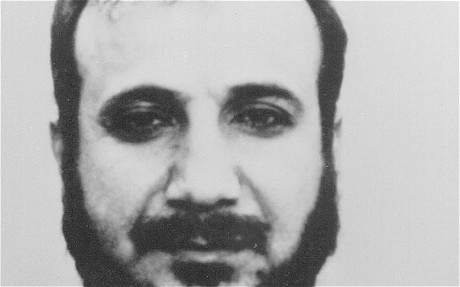[Diary of a Vengeance Foretold] Part 102
OCTOBER 12 1988
“We have always called for a comprehensive inquiry and one of the great areas of irritation is the question of why the disaster was not prevented and why our loved ones were allowed to be murdered.”
Dr Jim Swire, Father of Flora who died in the bombing of Pan Am 103 (October 15 2008)
Operation Autumn Leaves
On Oct. 12 1988, Mohamed Moghrabi [1] departed from Uppsala, Sweden, and travelled by car and car ferry to Germany. Moghrabi did so at the request of Imad Chaaban [2] Moghrabi traveled using a white Volvo motor car lent to him by Imad Chaaban.
According to Mohamed Moghrabi, the purpose of the trip was to assist the brother and cousin of Imad Chaaban, Jihad Chaaban, and Mohamed Samir Orfali, to gain illegal entry to Sweden. [3]
On Sept 5 1988, Jehab Chabaan, Ziad Chabaan and Samir Ourfali entered Germany on a flight from Damascus. Ziad is another brother of Imad Chabaan. [See Part 65 – SEPTEMBER 5 1988]
Imad Chabaan, who changed his name to Martin Imandi a few years earlier, resides in Uppsala, Sweden. Imad Chabaan is a close associate of PSF member Abu Talb.
Imad Chabaan had met the three men at Munich airport and attempted to drive them illegally to Sweden. But Danish police arrested them at the border city of Rodbyhavn on charge of carrying false documentation.
On September 7, Jehab Chabaan, Ziad Chabaan, Samir Ourfali and Martin Imandi were released from Danish custody. [See Part 67 – SEPTEMBER 7 1988]
Imandi was allowed to continue to Sweden but the three others were returned to Munich. Ziad Chabaan decided to fly back to Syria. Jehab and Samir chose to remain in Germany.
Someone advised them by phone to go to Neuss. Once there, they called Hashem Abassi, the brother-in-law of Dalkamoni.
They did so and were allowed to live at the apartment occupied by Dalkamoni at 16 Isarstrasse.
According to Mrs. Abassi, Chabaan and Ourfali stayed in the largest of her two children room.
According to a Swedish Police report, Chabaan and Ourfali stated that a Syrian Intelligence officer had driven them from Lebanon to Damascus. They were not stopped at the Lebanese Syrian border. Once arrived at Damascus airport, a Syrian police officer helped them to go trough security and passport control.
“In West Germany, we met an Iraqi who presented himself as Abu Hussein. We met him in a café in Neuss. From him, we bought two German passports for 2,000 marks, including the change of photographs,” the two men told SEPO officers.
Swedish Intelligence Officers revealed to the Swedish paper i-Dag that Abu Hussein was in fact Dalkamoni. (NB It is known that Dalkamoni was using the alias of Hafez Hussein.)
In Uppsala, Imandi was running a grocery store. Beside himself, two Libyan nationals were working in the market: Khalud and Manzem Khabaan. The BKA established that they were members of the PFLP-GC. But the BKA also suspected that the Khabaans were working for the Abu Nidal Group.
Intelligence
Today (12/09/1988), the Bank of Credit and Commerce was charged by U.S. DoJ with money-laundering. In 1986, in the middle of the Iran-contra affair, Adnan M. Khashoggi, a Saudi businessman and arms dealer, used the Monte Carlo office of the Bank of Credit and Commerce to transfer $12 million to an arms dealer for the purchase of weapons for Iran.
Back to the Present (2008)
Today, the High Court has totally rejected the Crown’s contention that, as a matter of law, the appellant was entitled to argue only those grounds of appeal that formed the basis of the Scottish Criminal Cases Review Commission’s decision to refer Abdelbaset Megrahi’s case back to the court. Here follows a comment from Pr Black, the architect of the Lockerbie trial.
“It was always accepted by the appellant’s legal team that the court had a discretion to reject any individual proposed ground of appeal, eg on the basis that it appeared on the face of it to be unarguable.
“But this was not good enough for the Crown, who insisted that it was a matter of law that the only grounds that the appellant was entitled to advance and entitled to have heard were those accepted by the SCCRC.
“It was in order to achieve such a ruling, which would have been contrary to decisions of the court in earlier cases, that a bench of five judges had to be convened. The Crown’s argument has been unanimously (and, with respect, correctly) rejected by all five judges.
NOTES AND REFERENCES
The Moghrabis: Terror as a Palestinian Family Business
Imad Chaaban aka Marten Imandi
Bank Is Charged by U.S. With Money-Laundering – October 12, 1988

